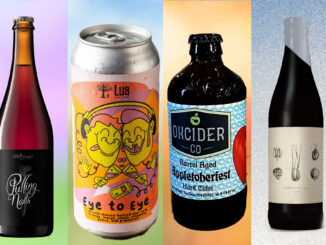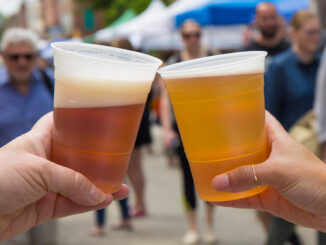
Every new American generation seems to be more in tune with sustainability and healthy habits. Baby Boomers, for example, were once known as the Hippy Generation, and they were known for embracing vegetarian lifestyles as well as yoga. Members of Generation X showed significant concerns about fair trade practices, natural ingredients and a more active lifestyle. Now that more members of the Millennial Generation have reached the drinking age across the United States, it would easy to assume that they would incorporate nutritional concerns into their choice of beer, but this does not seem to be the case.
Even in the San Francisco Bay region of California, organic beers have failed to make a strong statement. A recent article published by the Marin Independent Journal explains the dichotomy of seeing just about a dozen American breweries exclusively dedicated to organic beers, and what makes this so surprising is that there are more than 7,000 active breweries. Northern California and Vermont have traditionally been dedicated to organic beer production, but this is where Bison and Long Tail Brewing, the former flagships of organic beer, have terminated their operations.
The problem is not related to a lack of organic ingredients. American farmers have been embracing organic agriculture techniques in recent decades; while this has not been easy, nearly 2 percent of farmland is now reserved to organic produce. It stands to reason that breweries should not have a problem tracking down organic hops even though they cost more, but the issue can actually be traced to the higher costs that are traditionally passed on to consumers.
What makes a beer organic is the coveted label issued by the United States Department of Agriculture, and not many beers have it. There is a cost to obtain this label, not to mention the higher costs already absorbed by brewers during the production stage. When these costs are added up and passed onto beer drinkers, they come up to more than $0.50 per six-pack. In some cases, the costs can be as high as $2.00, and this is where consumers are drawing the line.
Certainly a marketing strategy could go a long way to promote organic beer among Millennial drinkers in the U.S., but this would also cost money and cut into the profits of brewers. The final challenge is presented by the expansion of the craft beer industry, which makes Millennial consumers believe that natural ingredients are the same as organic. In other words, when Millennial shoppers head to Whole Foods and Trader Joe’s, they load up on organic ingredients for their salads, and they mistakenly assume that their seasonal craft beer infused with honey oats is organic as well.













Leave a Reply
Be the First to Comment!
You must be logged in to post a comment.
You must be logged in to post a comment.